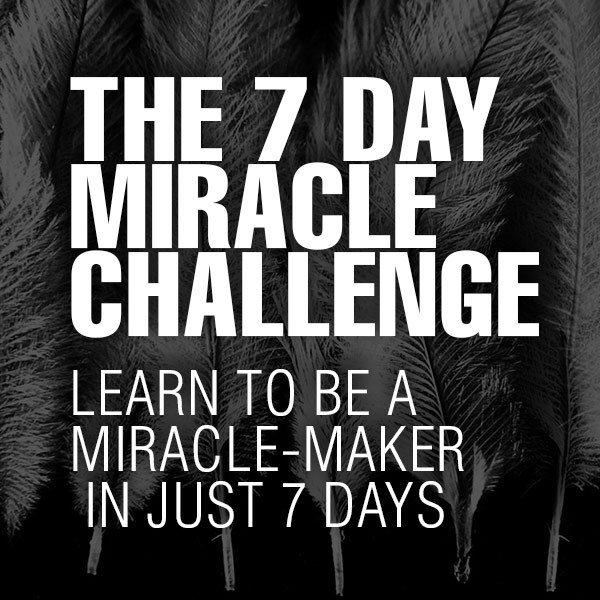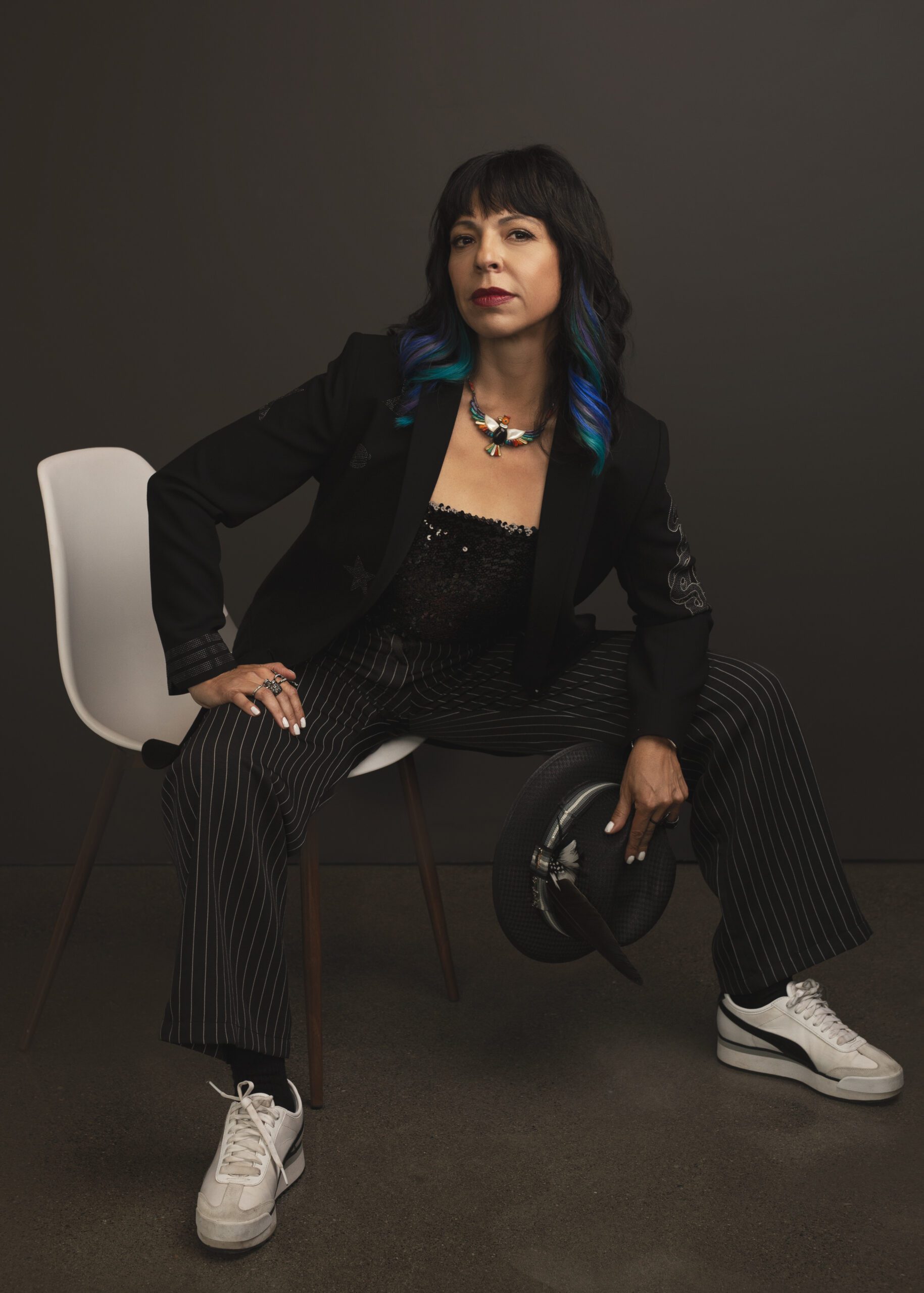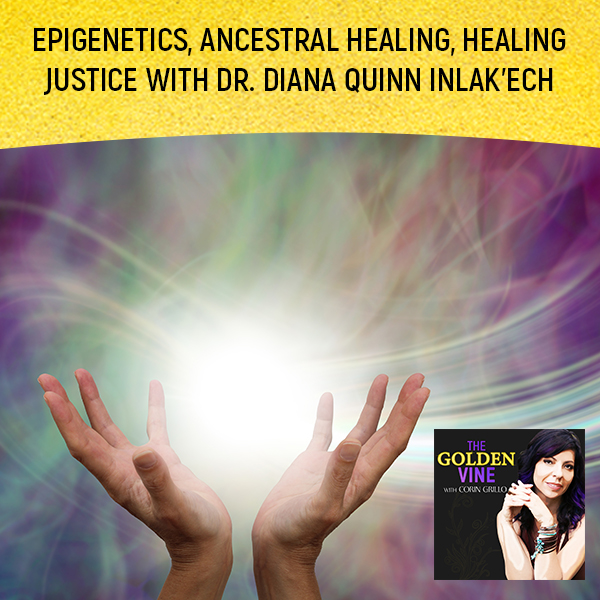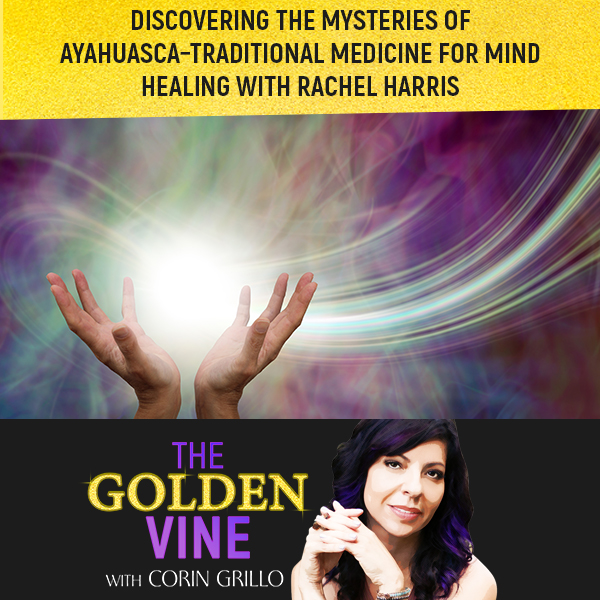
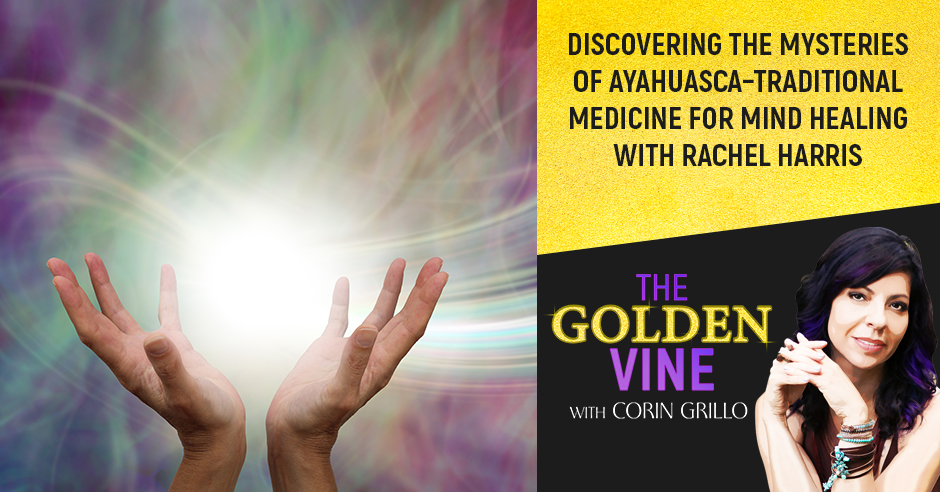
There are a lot of things in healing that we still have to learn about, especially when it comes to healing the mind. A lot of research is going on to get to the root of people’s positive experiences with a medicine called ayahuasca – a blend of different psychoactive plants claimed to have a host of positive effects on the mind. Today, joining Corin Grillo is Dr. Rachel Harris, a psychologist and the author of Listening to Ayahuasca, who shares the interesting findings of her research on people’s experiences with the medicine. The healing potential of ayahuasca for various psychological problems is a subject of numerous studies that continues to this day. This is a significant inroad into discovering the intersections between conventional and alternative practices in mental health.
—
Listen to the podcast here:
Discovering The Mysteries Of Ayahuasca – Traditional Medicine For Mind Healing With Rachel Harris
Some of you may already know that I have a deep love and respect for the plant medicines that are coming out of the Amazon and other regions. I want to introduce you to the author of a book called Listening to Ayahuasca. Her name is Rachel Harris. She spent fifteen years doing deep research on the topic by interviewing people and looking at the long-term healing and benefits of this. As a psychotherapist, it’s important for me to share with you alternative methods towards your mental and emotional healing. She even talks about some of her research looking at addictions that have been released through doing this plant medicine.
This topic is near and dear to my heart. I feel like it’s an emerging medicine that the West can use in many ways, not just for physical healing, but that deep craving that many of us are experiencing and wanting to deepen our connection with our authentic spirituality. Maybe help us deconstruct some of the more dogmatic types of religions we came from and get to the heart. For me, what the spirit of Ayahuasca shown me was more of my heart. It has helped me create a deeper, powerful relationship with the earth and with the earth’s medicine much like angels have connected me to the divine.
Grandmother Ayahuasca has done a similar thing for me, and I’ve received much healing by working consistently with this plant medicine. That’s one of the reasons why I’m passionate and I want to continue to share these medicines with you and bring researchers and different experts on this field. As it’s emerging, there’s a lot of research going on. There’s a reemergence of exploring these psychedelic plants in a way that they can help repair the brain regrow portions of the brain, and help you have a different experience in life. We also talk about some of the dangers and what’s happening in the scene, where it’s becoming highly profitable for some people to hold these circles. We talk about what to look for if you’re curious about these medicines and want to start exploring this territory yourself.
Usually with plant medicine, it starts calling you. It’s not always a decision that you make, but maybe you start hearing about it more often and there’s something inside of you that stirring. I’m a big believer in listening to that sweet inner voice, but either way, this is fascinating research that she is presenting, and we are at the cusp here of reframing and re-imagining all of our institutions. Whether it’s our political institutions, our justice institutions, and we’re at a place where we’re reviewing all of these systems. That includes the medical institution and system. I hope you enjoy this episode. She’s a fascinating woman and an ultra expert in this field. Not only is she a researcher, she’s also a psychologist, a PhD. She’s had a practice for 35 years. She’s now technically retired, but she can’t help it. She’s tinkering still. She’s still interviewing people and has a different book coming out. I hope you enjoy the information that she has to share about one of my favorite teachers Ayahuasca.
—
We have so much in common in a way. You’re a mental health professional psychologist, and you also stumbled into some shamanic plant medicine along the way. I’d love to hear from you when you were a tiny girl growing up where you’re like, “I want to go to the Amazon and study this medicine.” Share with us your process. What were you doing before it all happened and a little bit about the journey?
I’m going to start out-dating myself. I graduated from college in 1968. I was on the East Coast. What was I going to do? I had been interested in that interface between psychotherapy and Eastern religion, which was hard to come by in the ’60s. It was beginning. What I figured was the best place to be was the Esalen Institute. I graduated right from Boston to Big Sur and I was in the residential program, which was a six-month program. There were eleven of us and they threw everything at us. That was their best people, therapists and their best everything. None of us were in any shape to leave we all wanted to stay. I worked on the staff for a couple of years. That’s been my clinical foundation was that time at Esalen and working with the top therapists and exposed, they were light years ahead of the rest of the country. When I eventually, a couple of years later needed to go to graduate school for a graduate degree, I knew I didn’t want to do clinical because I’d already had enough experience that wasn’t going to be integrated. There weren’t the interesting graduate programs that there are now, there was nothing.
They’ve gotten creative.
I’m talking half a century ago, so you understand why I’m retired from private practice. I did a research program and went into a research office at the medical school at the University of Miami. I had a decade as a grant writer, researcher writing articles. That was a solid foundation for me because I have to say this to the women readers a female mentor is the best. You could find a female mentor. I had a female mentor in research. She guided me of becoming a researcher and that’s been my foundation. I was a householder. I married and I raised a daughter, who’s now 37. As she was finishing graduate school, I was arranging for what I thought was a lovely winter vacation.
I would get out of New Jersey in February. That makes sense. I would go to Costa Rica to a retreat center that was between the Pacific Ocean and the rainforest. A few days before I leave, I get this call and the person says, “Do you want to be in the ceremonies?” I said, “What ceremonies?” I didn’t recognize any of the jargon I had. I didn’t get the message. I didn’t have any clue, but there I was signed up for a week with Jeremy Narby you would think I would have looked him up, but I didn’t, I wasn’t going to go to the lectures. I was going to go to the beach. Of course, I said yes.
It sounds like a lighthearted ceremony.
At that point, I knew it was Ayahuasca. I looked it up. I thought, “I’m going back to my roots.” California, the late ’60s, I had roots in psychedelics. That was my first experience and the shaman was from Ecuador. They were Sequoia Shaman. People will often report their first experience is the biggest and the most amazing so that was the case for me. The days that followed, and then there are a couple of ceremonies that I hear a voice. I had never heard a voice before. I was asking all these questions. Nobody had any answers to the shaman. They didn’t understand me. They didn’t want to talk to me. They can’t be bothered with a Western woman. I was like, “How does this work? How was my experience specific to me and my life? How did it get all the details right?”
I kept asking that question. The clinical question is what happens after the ceremony? Even by then, this was 2005. There were a lot of reports on people’s amazing experiences. Ralph Metzner had a book about a whole bunch of most therapists, personal experiences, and a couple of pages each, I didn’t want to ask for this another story. I didn’t want that. I wanted to know how are you different? What difference did this make in your life? What are you working on now in a way that you weren’t able to before? What’s the clinical significance in your life and your daily life when you’re back home? Isn’t that the clinical question?
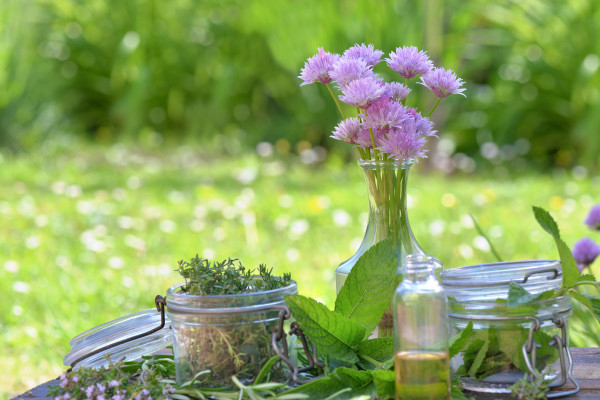
Healing With Ayahuasca: There are many types of research going on that explore how psychedelic plants can help repair the brain.
That’s the clinical question. Especially when you’re talking about the era that you were in, where it’s psychedelics and there’s this revolution going on. Looking at it, what is the actual long-term impact as opposed to, “I talked to God one day, that was cool?”
I was there in San Francisco for the Summer of Love. I was falling down to Big Sur, but I saw Golden Gate Park, and all of that, one year later, it was ripped by heroin and amphetamines. I have to ask, what happens after the flash? That was my clinical question.
When I was in my early twenties, I would take psychedelics or I would try things. The huge shift, the biggest difference was having an actual elder there to contain and to do some healing work and to hold the container. Anything done without respect can in a way, get a little polluted or that’s what been my interpretation of the difference between what we’re doing now, which is the medicine and what was happening way back then.
It’s a big difference, but I have to tell you I’ve been humbled even in that regard because I’ve been interviewing people. I did a research study and I wrote the book, Listening to Ayahuasca, but I can’t stop myself from interviewing people. I was wanting to know about their experience and how it went? What difference has it made? One of my people ask, “How will I know if it’s an authentic experience or not?” I said, “There are two concrete ways. One is do they ask you about any medication that you’re on? They’re being responsible and not wanting to have any contraindications or problems with the previous history. You want to know that they’re going to be careful and take care of you and be responsible. The other one is what’s the music? Are they going to sing? Are you going to hear CDs? What are they going to do for music?”
This one guy was telling me about his great experience. I sweetly asked because I’m such a snob. I said, “What was the music they play?” He said, “We had great CDs or it was a great soundtrack.” I’m like, “You didn’t have a shaman present.” He had incredible healing. Even though I had to be humbled by that, there should be an authentic shaman present who has incorporated and received these magical songs and Icaros but this guy had legitimate healing with a tape deck. I didn’t know what to say. There’s a lot of mystery involved in this medicine and I have to respect that as well.
Do you feel like it’s almost maybe equal parts the intention that you set? In the past, when I’ve worked with these plant medicines, it’s always coming towards it with deep respect or coming towards it with like, “I’m Corin. Let me say hello.” Not that people don’t learn, even if there’s like, “Here’s some psychedelic.” People learn no matter what, but that is awesome that he had a powerful experience with the tape. Was it an eight-track back then?
I didn’t ask for any more details. I was flabbergasted. I’ve been humbled by that listening to people and their experiences. I have to say for your readers, this is powerful medicine. I come to it in fear and trembling to tell you the truth and you never know what’s going to happen. It’s unpredictable and there’s risk involved. I’ve gotten emails and phone calls from people who’ve had bad experiences that keep them stuck. What do you then? There’s a whole range. I have to say, I often hear the first experience is the hook. We give a personification to this medicine. I’ve adopted the Grandmother Ayahuasca, which is, then it doesn’t any more prevalent in North America, but because some of the indigenous tribes consider Ayahuasca to be male.
I didn’t know that.
There’s a few here and there and Jeremy Narby, since I know him, he’s reprimanded me a number of times and saying, “No, it’s not a Grandmother. It’s a snake.”
We’ll go for that.
We have different symbols and personifications. Certainly, often that first time, there’s this deep connection with the medicine.
That’s what you see through all your research, people who continue that and report.
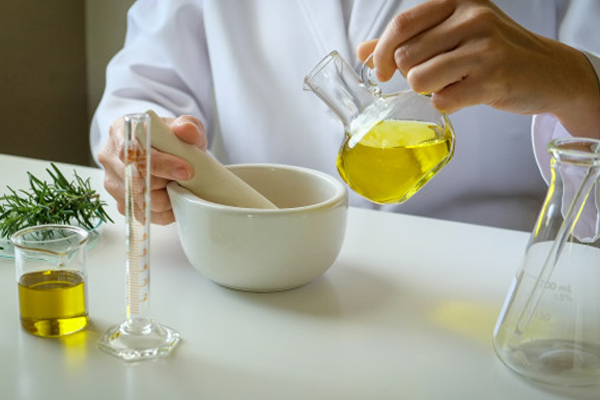
Healing With Ayahuasca: There’s a lot of mystery involved in plant medicine, and you have to respect that.
It’s a common experience.
Would you say even people who didn’t have a particular experience the first round still get that hook?
It’s not all. One of my mantras during a ceremony for fifteen years, “I’m never doing this again. I am not going to do this again.” The first time I do.
You haven’t learned your lesson yet, Rachel.
There are some people who say that and then they don’t come back.
I want to talk to you a little bit more about that, but there are some people we’re talking about Grandmother Ayahuasca and the snake. That’s what we’re going to call her. A lot of people don’t know the history. How was it discovered? That’s a fascinating story.
Nobody knows that.
There’s a lore.
Do you have a story?
What’s the lore?
The lore is that the anthropologists asked and the indigenous people said, “The plants told us.” There you have the whole cosmology of these plants and that their teacher plants. People do develop a relationship with the spirit of the plant. There’s an education involved in that. Those are given specific instructions. They’re given songs. It’s an education. That’s when people do a Dieta. They’re specializing and listening to that plant that they’re dieting with. That they’re blocking out almost everything else and drinking that tea. It’s that relationship that’s meaningful and important. As a therapist, I see it as a therapeutic relationship. It’s fascinating to me how that works.
There’s still maybe a disconnect with people who hear about doing these medicines and don’t understand why they’re called medicine. What can you share with us about why Ayahuasca is called a medicine as opposed to a drug?
[bctt tweet=”The passion that Westerners have for psycho-spiritual development is very much a Western perspective. ” via=”no”]This is the major medical system for the indigenous tribes and whatever the complaint is, this is the family medicine clinic. People come for treatment and there are even a few tribes where the shaman drinks the medicine, the shaman drinks Ayahuasca, not the patient because the shaman is drinking to get information about the diagnosis and the treatment. He’s receiving information from another source and then he prescribes that treatment, usually other plants for the patients, but in the Western culture everybody is drinking. I’ve been in ceremonies where one of the people in the community, in the ceremony, was not appropriate to drink. Maybe they were too sick or there was a history of serious mental illness. This one-woman had a lifetime of schizophrenia. The decision was, “She’s not going to drink a cup of this powerful medicine.” She was given a few drops and she sat in the ceremony and it was an important experience for her because I interviewed her afterward. I wanted to know how this went and it was important for her to be included and she felt she was part of the healing. It’s mysterious how this works. It has to be consumed. I don’t know but it’s used as a major medical approach in the jungle.
In the jungle, do they work with medicine even with children?
Yes. It’s much smaller amounts. The Daime, there has been a pattern of pregnant women drinking small amounts, hopefully, or giving a tiny little drop to a newborn baby. It’s all much smaller amounts and this is not something that would be acceptable from a Western point of view.
I know that’s why I’m asking. My Bachelor’s degree was in Anthropology. It’s important to understand our cultural limitations. The way we view the world is not the way everyone else does in any remote way.
From an anthropological point of view, Ayahuasca was used for a variety of purposes, not at all the way we’re using it as Westerners. It was used to know where the animals, where to hunt because it gave extra information. People would know that they were given help intuitively known where the animals were. It was also used to hex people and to attract a partner or to spy on a wife to see if she’s cheating. It was used for a variety of reasons. This passion that the Westerners have for psycho-spiritual development is a Western perspective.
That’s what it’s being used for here onto people aren’t trying to bewitch a lover with it. Although it is a great idea and I’ll have to keep that one in my back pocket in case. To back pocket that one, you never know. You get invited to the ceremony and you’re like, “Why not?”
I was not at all cavalier. Even from the beginning.
“Let’s give it a shot.” Was it in that first one that you heard of voice? Can you share with us part of the medicine experience for you?
I was intentional in that first ceremony and I knew I was going back and picking up myself from before I had my daughter. It had been 25 years and I was coming back to my original history that was part of this searching, passion, and coming out of that householder stage. That was important for me in my own sense of my life development. My dad had died about 6 or 7 years before this. I had brought him home with hospice care to my house and he died in my home. As he was dying, that last 36 hours, it gets intense in the presence of death approaching. There’s this rattle that filled the house. It’s this process that is huge. At one point, I was not in the same room with him. I was in an adjoining room and all of a sudden, I was swept out of my body up through the roof gone and I got scared. I thought I’m going to die with him. I’ve brought myself down. I caught myself and grounded myself and sat down and was shaken. This was psychedelic as any experience I’d ever had and I was on nothing. My dad died then the next day or so within 36 hours and I asked all my spiritual friends, “Have you ever heard of this?” Finally, I had an old friend and she said, “You went partway with him. He was in the process of leaving and you went partway.” Eventually, I found Raymond Moody’s book on Shared Death Experiences, which describes this exactly.
Many nurses who work with dying patients will have this experience, many people do. I’ll tell you another example of that, but many people have this experience. When I go into my first Ayahuasca ceremony, I want to have this experience without becoming afraid and bringing myself down. I relive the whole experience of my dad dying, my final conversation with him. I blast off up into the cosmos, but at this time I go all the way and I’m out in the universe is this total void blackness and sparkling lights. That’s all I remember, but it was this wonderful therapeutic reliving of my last moments with my dad and then this mystical experience. That was my first ceremony. That’s why I’ve kept at it for many years.
You try to put it down, you try to stop.
That was one of those experiences. I came out of that asking, “How was that specific? I know it’s in my unconscious. It’s a magnifier of what’s inside me anyway, but that was awfully perfect.”
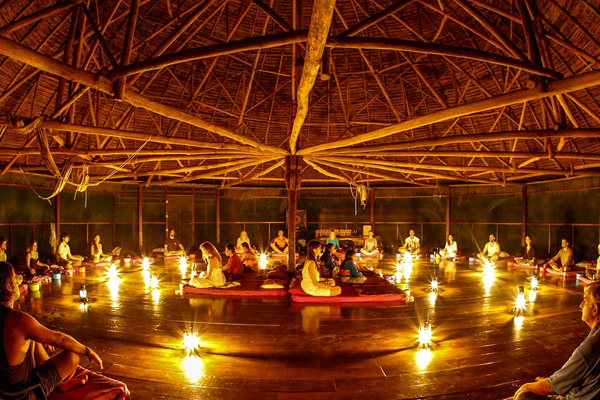
Healing With Ayahuasca: There are things that happen as a result of an ayahuasca ceremony that are beyond the purview of what we do in an office.
Perfect is the word. I am from the beginning as well because I’ve been working with Grandmother for many years and maybe also because as a psychotherapist too and someone who’s fascinated by the psyche. It’s like, “How on earth did she teach like that?” It’s the incredible teaching, the depth, and the perspective that you gain. That sounds powerful for your first experience.
I had other experiences that were total, bummers where I was stuck in my worst nightmare like everyone I’ve had the others as well.
I’ve heard some people call that the dark circus. It’s like, “It’s not going anywhere.” It’s in it and you do have your fair share.
The question is, how do you make the best use you can have even the bad experiences?
I know you’ve had a lot of conversations with people and I know as a psychologist for you, your lens, you’re looking at mental health and long-term support. What are the things that you discovered through your research?
What’s interesting, things we look for when a client is well in research, where their mood is better, they’re less depressed. They’re less anxious. Their relationships are improving. They’re enjoying their life a little bit more but there are things that happen as a result of an Ayahuasca ceremony that is beyond the purview of what we do in an office. That is people get a whole revelation of a new belief system. I can’t tell you the number of people who’ve said to me, “I was an atheist before, and now I understand there’s a meaningful universe and people find a purpose in life.” That’s always interesting how it’s often specific to them. There’s a real transformation that can sometimes happen that does not generally happen in a psychotherapy office. If somebody is doing better in their life, I’m thrilled if this is a whole other ball game.
It’s a whole other level.
Even someone, “I’m not touching alcohol. I’m never drinking.” We don’t do too well with that in psychotherapy, we don’t change, people are eating behaviors and all of a sudden, they’re eating much healthier after ceremonies. It does something that’s beyond what traditional therapy does, that’s for sure.
I had another guest on and he’s a Mormon and also a therapist. He went to the Sacred Valley and tried a watch him and tried San Pedro and had a deep realization. It was a whole new level of his religion then opened up. He’s in the process of merging this like, “Pachamama real mother earth is alive.” He’s rectifying that. He was talking about how he almost feels ethically obligated to start talking about some of these things, even in a place that’s conservative about this medicine. You saw a lot of people, even atheists coming to a different conclusion?
Yes. There’s an awakening that can often happen. This is what the research into psychedelics, in general, is looking at and measuring the complete mystical experience. That they’re finding that it’s an effective treatment for depression, for death anxiety, for terminal cancer patients, even for smoking cessation, which is one of the most difficult addictions to stop smoking. That’s quite amazing. It was only a small pilot study, fifteen subjects, but 80% stopped smoking. That’s amazing. It’s silicide then at Johns Hopkins.
It’s incredible and there is a lot of amazing research going on in the field. This resurgence of that. I’m happy about that 80%. That’s insanity. That’s awesome.
IAs therapists, we have struck out on that completely.
[bctt tweet=”Taking part in an ayahuasca ceremony is a learning experience where you gain incredible depth and perspective. ” via=”no”]There are a lot of strikeouts. A lot of successes.
They don’t do well with addictions. That’s going to be a different thing.
Those are the things you’re talking about that the medicine can support. I have heard about the Ayahuasca miracles, like the miracle healings. Have you seen anything other than addictions being cured? Have you heard about other things, depression, anxiety, addictions, anything else?
The data supports people are less depressed. There’s no question about that, but the question is, how long does that last? What the data is showing at this point is this couple of weeks. What if they have to drink Ayahuasca once or twice a month, it’s not the same as taking Prozac every single day. This is a case where the Santo Daime church intuitively understood that there needs to be a constant stream of what they would say is the sacrament, the Daime, but that’s what healing and helpful. They often have meetings every two weeks. It’s what the research shows are that depression goes down and then it begins to build up again right around two weeks. That’s the perfect time to have another ceremony.
If you can inform our audience about who the Daime is and where they’re from?
This is a syncretic church out of Brazil. Syncretic means it’s a blend of Catholicism and maybe other Christian phases, I’m not clear but it’s certainly Christian an African religion that involves mediumship and then the indigenous culture of an Ayahuasca ceremony. It combines these three aspects but it is a Christian ceremony. They drink mostly during the day. It’s light and everybody sings hymns that have been received through mediumship usually. It’s much a church meeting and a church membership. That’s quite different from the indigenous circles even as they come to the states and meet in that indigenous format. I want to say something else though, about healing. We don’t know yet what this medicine will do medically. There are reports, but we don’t know. It’s been a difficult medicine to study because it’s from plants. To have a standardized medication to give it’s not possible. In Spain, they work with freeze-dried Ayahuasca in a capsule.
They try to do MAPS. They wanted to do a study with the same capsules that they were using in Spain. They wanted to involve the shaman for an inauthentic ceremony and the shaman and said, “The spirit’s not in those capsules.” That was the end of that project. There are a lot of things involved and I have to say, I had a medical diagnosis in March this year and I needed surgery. Before I came back east for the surgery, I received a ceremony, healing from a shaman I know well. It was over an hour and he sang, there was no medicine involved and it’s not what there was a miracle healing because I still needed the surgery, but there’s no question it was healing. It was powerful experiences of these songs are medicine. There should people, patterns of vibration and energy patterns. They are medicine. The medicine is conveyed to us through different aspects that we receive in a ceremony and it’s all interwoven and not possible to separate out. There’s plenty of mystery in this whole process. Eventually, down the road, there’ll be more research about how this medicine works medically in a physical way, not just a psychological way.
I’m looking forward to that research. It’s fascinating. Another thing I want to say is that because it’s become popularized in the West. Even people running to the Amazon, there are certain dangers in running to the Amazon and go into any old Shaman and getting your medicine. I’d like to honor that here and have your voice, because there could be people who are curious about these circles. What are some of the guideposts that you can share if they are looking into it? What are the things they could look for to make sure that whatever they’re doing is safe?
It’s hard to know what’s safe in this business and there’s a good bit of money involved, especially from the perspective of indigenous people. I used to say, “Make sure you get good recommendations and from people who know.” That’s all true. I have to say a dear friend of mine, who’s experienced, got good recommendations and it was a disastrous situation. You do have to check it. I don’t honestly understand and everybody tells me, “It’s different than jungle.” It’s true. It is because you have all the sounds of the jungle. The presence of the jungle is another element of healing. There’s no question but the process of working with this medicine is an ongoing process.
It is not a one-shot or one week and everything’s fine. Some people can continue going down once or twice a year or regularly, but that’s not convenient. What I’m saying is this is not a miracle cure. There’s an ongoing process. Everyone has their own sense of what feels safe for them. I’m rather attached to flush toilets. I don’t want to be too old to be in the jungle without a flush toilet. That already limits a situation. I’m not all that fond of scorpions and snakes, the whole thing. Everyone has their own criteria of what’s comfortable for them, but it is hard to know what shaman is safe. There are plenty of stories of women being raped or taken advantage of and plenty of stories.
That’s what I’m getting to.
You always want to have people with you. You don’t ever want to be alone in any situation, no matter what the shaman promises for healing. Never be alone. Your safety, it’s difficult to know what the best decision is, but for sure the best decision is never to be alone.
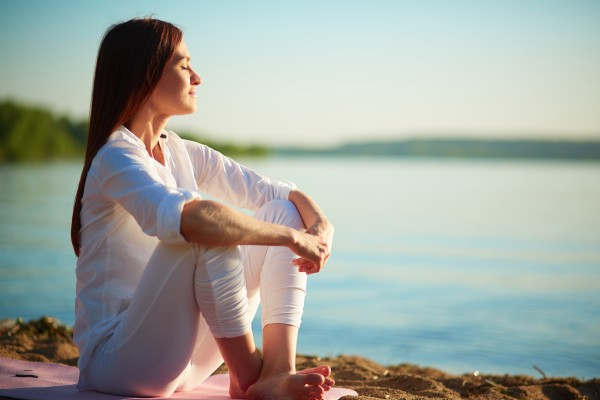
Healing With Ayahuasca: The way we view the world is not the way everyone else does.
That’s a great start. That’s such a bummer about your friend who had a great recommendation and it didn’t work out. The same goes for four circles held in North America as well. You do have to trust the person or people that you’re with. I went to one circle that was a circus. I only go to circles where I know-know the people I’ve been going to, the same people for ten years because they’re impeccable. They let people crawl across the room and touch people. I was deep in having my experience with the lady and this man crawled across the room and started massaging my feet, lifted up my blanket, massage my feet and the shaman is sitting right there. It was traumatic. I was like, “We’re not going to be doing any of these.” That came as a recommendation too.
That should not happen. The shaman should have intervened. There should have been helpers to stop it. You have your own little circle of sanctity that you’re in and you don’t have to deal with anyone else’s energy. There’s enough going on with my own. I don’t need anyone else’s.
Can you imagine? I have my right words either. I’m discombobulated.
That’s it, we’re vulnerable when we’re in the throes of it.
I know, “Excuse me. I don’t need your Reiki foot massage. If that’s what you want, what are you doing? Get off my feet.”
Did you get rid of them? Were you able to get them off you?
No. When I get into situations like that, you know how to fight, flight, and freeze. I froze. I couldn’t. I went back and I was like, “I wish I could have said something.” Unfortunately, I talked to the leader of the circle, sent him an email saying, “You need to watch what’s happening. You can retraumatize sexual abuse victims. There’s a lot of stuff you need to watch your people and make sure they’re not getting up.” He was defensive and softcore about it. That’s a foot massage and we hear about all the other crazy things that can happen.
People can be drugged with the Ayahuasca. There are other drugs. That’s always my first question, “What do you know about what you drank?” Usually, we don’t know. It’s a complicated situation.
I’m grateful for the research that you’re doing. With all of this stuff, we’re stepping in the right direction, but bringing awareness, not about like, “It’s wonderful medical, amazing depression.” Also, be wise about what you’re doing and to make sure that you’re doing it with good people in safe environments who don’t allow foot massages and strange women or worse.
I’m sorry.
You’re sweet, Rachel. Thank you. I feel your empathy.
People get traumatized during ceremonies for a variety of reasons, but then to speak to the leader and have him soft-pedal this that’s a layer on top of it. I’m sorry for both.
[bctt tweet=”Research finds that ayahuasca can be a very effective treatment for depression, anxiety, and even for addictions.” via=”no”]Thank you for that. That happened not too long ago, but I said what you’re saying like, “I’m not doing this based on recommendations.” I’ve been with the same people for ten years. They’re tried and true, hold incredible power and space, and they’re not slappy. No slap allowed unless it’s the vomiting.
You would think that would discourage people.
It’s not a sexy environment, I wouldn’t say. Rachel, I want to thank you for sharing. Is there anything else that you want to share your research or the work with any of our readers?
I want to say something about a book that’s going to come out in 2021 and it’s about psychedelic psychotherapy. It’s a collection. Lots of people wrote chapters. I wrote a chapter and I took a step farther in that chapter than I did in my book. I want to acknowledge, I was a little vague about it in the book, but I stepped out in the chapter. That is what I recommend if you can. If you want to do therapy after some ceremony, you’re feeling that, “I need more to integrate this.” I’m not even crazy about that word to integrate, I’m in a process with this plant and I’d like some help from Western psychotherapy to work with this. That my real recommendation is to go to a therapist who has Ayahuasca experience because then there will be three of you in the room. That is the best. What I said in my book was, “Go to someone who knows the territory.”
I took down. I have to say, “Go for someone where you share that relationship. There will be a presence that both of you will feel. It makes the process completely different. It’s a whole different unfolding.” Part of the reason I’m not that crazy about the word integration is a lot of people interpreted to me, “Spend some time in nature. I’ll get a massage. I’ll write in my journal.” No, there’s a real ongoing process that involves a wheelchair. This is an unfolding process as psychotherapy is. It’s not about those first few days after the ceremony or journaling it’s the process that continues. The people I see who work with that and come to another ceremony and work with that. There’s this process ongoing that is powerful. To do that with a therapist who understands what’s happening in that process is a remarkable opportunity for healing.
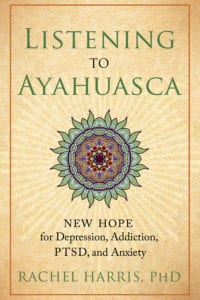
Listening to Ayahuasca: New Hope for Depression, Addiction, PTSD, and Anxiety
That adds Western fusion into it because that’s not how they do it. There’s not a lot of psychological processing after your circle. You’re on your own.
That’s a different culture.
You’ve talked to the lady about it. Thank you for sharing that. Your book that’s out is Listening to Ayahuasca: New Hope for Depression, Addiction, PTSD, and Anxiety. Where can people go to find you, Rachel, find this book and your future books?
Amazon, of course. I do have a website that I eventually respond if you contact me through the website. The website is ListeningToAyahuasca.com. It’s the title of the book.
Thanks, Rachel.
Thank you. This has been delightful.
Thanks for sharing your wisdom with us.
Thanks a lot. Good luck with your work.
Important Links:
- Listening to Ayahuasca
- Shared Death Experiences
- Amazon – Listening to Ayahuasca
- ListeningToAyahuasca.com
About Rachel Harris
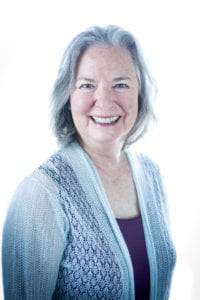
Love the show? Subscribe, rate, review, and share!
Join the Golden Vine community today:

